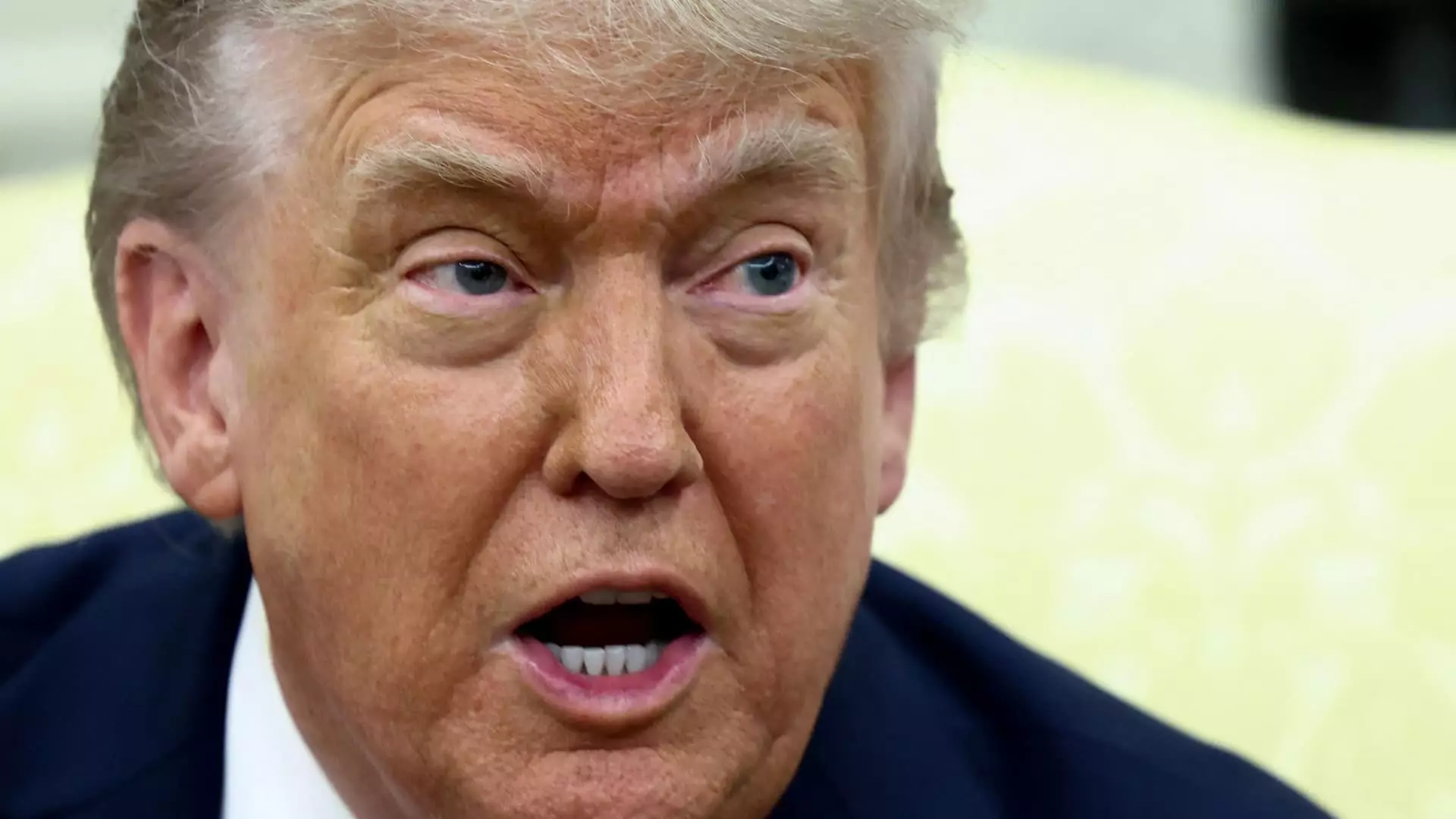In a spectacle that blends the worlds of politics and technology, the relationship between President Donald Trump and tech mogul Elon Musk has taken a sharp turn. Once celebrated as a strong alliance, their camaraderie appears to be unraveling over the contentious proposal of a tax bill. Trump has attributed Musk’s recent criticisms to a personal affront regarding the elimination of electric vehicle (EV) incentives, alongside the dismissal of Musk’s choice for NASA leadership. This feud not only highlights the fragility of political partnerships but also unveils the complex dynamics at play between powerbrokers in the GOP and the ever-influential tech industry.
Trump’s comments, where he expressed disappointment with Musk, serve a dual purpose: they are a way to reestablish his authority while attempting to downplay the substantive concerns raised by Musk. The president’s assertion that he has “helped” Musk significantly illustrates a perspective that often permeates right-wing ideologies—one where contributions to political campaigns grant certain privileges. However, it is exactly this viewpoint that seems increasingly outdated, especially when juxtaposed against the values espoused by the center-wing liberals advocating for equitable reform.
Elon’s Justified Outrage
Musk’s pointed retorts have echoed loudly on social media, showcasing not just a disagreement with policy but a deeper frustration with what he perceives as a betrayal. His description of the tax bill as a “disgusting abomination” is not merely hyperbole; it reflects a genuine concern for the future of electric vehicles and environmental policy. The sudden removal of EV incentives sends a detrimental message to both investors and industry stakeholders, imposing limits where innovation should flourish.
But here lies an uncomfortable truth—Musk, known for his unorthodox approach to discourse, may be spooning out the truth in a rather abrasive fashion. Nonetheless, his call for a reevaluation of the bill, one that prioritizes EV incentives while sidelining taxpayer-funded “pork” projects, resonates powerfully in an era where fiscal responsibility is paramount. The defense of traditional energy subsidies without addressing the equal demand for clean alternatives raises eyebrows, revealing potential hypocrisy in the administration’s stance on a “fair” budget.
The Collateral Damage of Partisan Politics
Underlying this feud is a broader reflection of the incredible pressures that come with being at the intersection of technology and politics. Musk’s public condemnation of Trump’s tax plan may serve as a rallying cry for progressives who have long been skeptical of the former president’s environmental policies. This drama illuminates a troubling pattern where loyalty and ideological alignment often precede the welfare of society and the environment.
Furthermore, Trump’s insistence that he can selectively appoint individuals to critical positions based on political loyalty—illustrated through the rejection of Jared Isaacman as NASA head—exemplifies a worrisome trend in contemporary governance. By implying that only Republicans are worthy of leading important national institutions such as NASA, Trump disregards the merit-based selection that should ideally guide our nation’s scientific endeavors. This aligns with a broader agenda that suffocates diversity of thought and undermines innovation.
A Call for Perspective
As tensions escalate and the public observes from the sidelines, it’s imperative to focus on the ramifications of this fallout. A vibrant technological landscape thrives when there is open discourse, not just from politicians but from innovators like Musk who work at the edge of the conceivable. To assert that the president is above reproach stifles both accountability and progress.
The complexities surrounding this current political strife should serve as a warning: collaboration at the highest levels should be built on mutual respect, shared goals, and a commitment to the greater good. Musk’s philosophical shift serves as a reminder that advancements in green energy are not merely about dollars and cents; they are about vision and responsibility. What needs to emerge from this political tempest is a constructive dialogue—one that acknowledges the legitimate concerns of both allies and adversaries without reverting to petty squabbles over personal grievances.

Leave a Reply